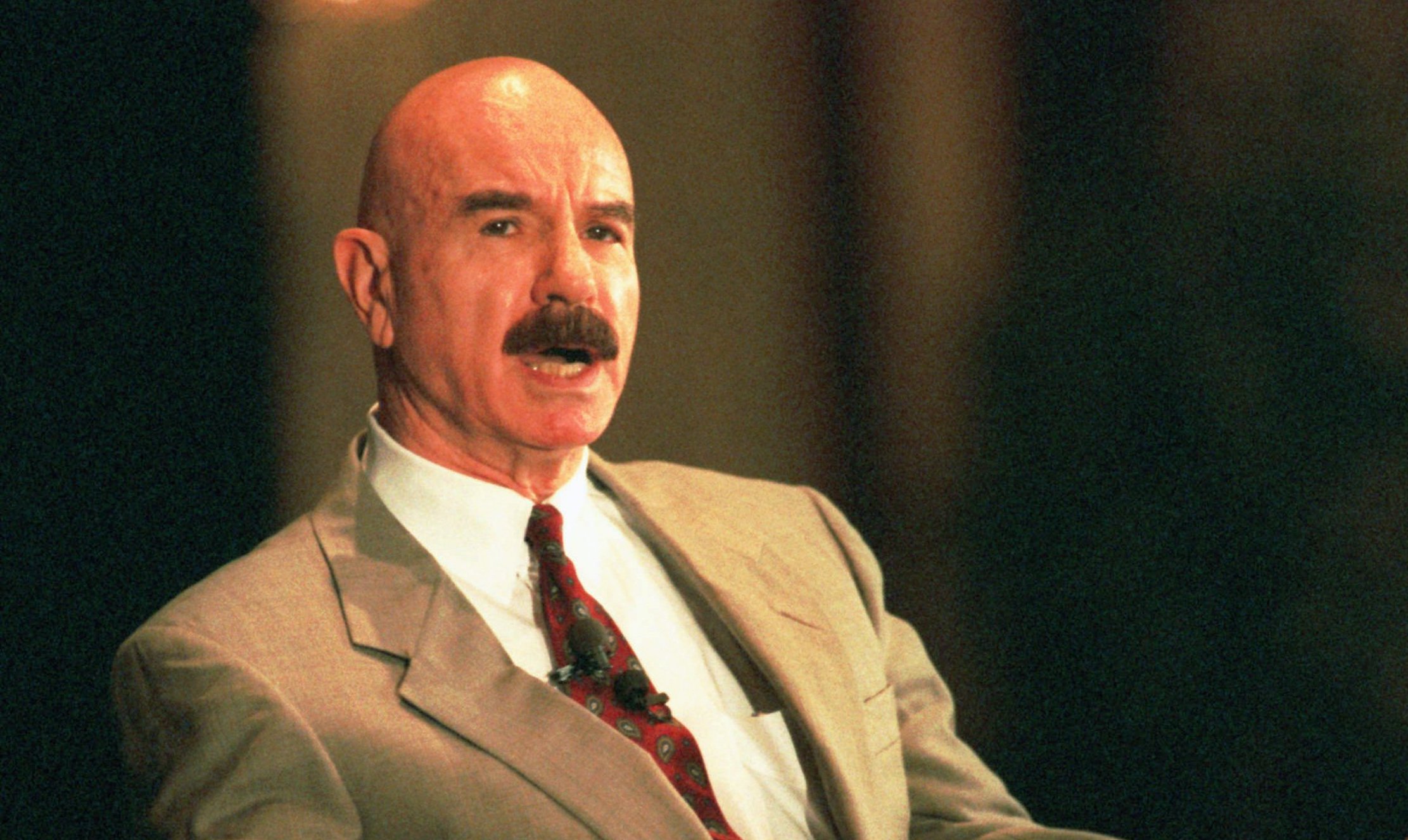G. Gordon Liddy, the former FBI official who helped orchestrate the 1972 break-in at the Watergate complex under orders from President Richard Nixon, has died at the age of 90.
Liddy died on Tuesday at his daughter’s home in Fairfax County, Virginia, according to the Washington Post, which said his son, Thomas P. Liddy, confirmed the death but did not comment on a cause other than to say it was not related to COVID-19.
Instantly recognizable with his bushy mustache and immortalized as the “Sphinx of Watergate” for his silence during the Watergate scandal, Liddy was a polarizing figure in American politics who served more than four years in prison for his role in the raid of the Democratic National Committee headquarters.
His story, inexorably intertwined with Nixon’s, has taken on renewed significance in recent years as another former president, Donald Trump, faced an impeachment inquiry and is consistently compared to “Tricky Dick” for the controversies he faces and his aggressive tactics employed to attack political rivals and the press.
In the later part of his life, Liddy wrote an autobiography about his life and work for Nixon, spent two decades as a talk show radio host, and made appearances in movies and popular TV shows.
Liddy was born in Brooklyn on Nov. 30, 1930, and was named after George Gordon Battle, a New York lawyer who became a Tammany Hall leader. His father, Sylvester, was also a lawyer.
Liddy graduated from Fordham University before serving two years as an Army artillery officer in the Korean War. After being honorably discharged, Liddy returned to New York City and attended Fordham Law School.
Liddy joined the FBI in 1957 and worked as an agent for roughly five years under J. Edgar Hoover, and around this time, he got married to Frances Ann Purcell. After resigning from the bureau, Liddy returned to New York City to work as a lawyer and, during the 1960s, ran unsuccessfully for district attorney and a seat in the U.S. House of Representatives.

In the early 1970s, Liddy took on roles in the Nixon administration and became one of the president’s top lieutenants as a member of the “Plumbers,” a secretive White House group created in response to the publication of the Pentagon Papers.
In the summer of 1972, after Liddy became general counsel to Nixon’s reelection campaign, he was ordered to plan the break-in at the DNC headquarters housed in the Watergate complex in Washington, D.C. He and former CIA official Howard Hunt were in a room in the nearby Watergate Hotel, set up to be a listening post, when five burglars were apprehended attempting to replace a faulty wiretap.
Although he and Hunt evaded authorities, Liddy was convicted of conspiracy, burglary, and wiretapping for his role in the raid and was sentenced to 20 years in prison and dealt $40,000 in fines. But he only served about four and a half years behind bars when President Jimmy Carter commuted his sentence, citing “equity and fairness” compared to his co-defendants in the Watergate case.
Liddy published a bestselling autobiography in 1980, titled Will, in which he offered insight into his life and work for Nixon, including discussions about assassinating columnist Jack Anderson, who had published embarrassing stories about Nixon. He also opened up about his refusal to talk during the Watergate investigations and his loyalty to Nixon, who resigned in August 1974 in the face of almost certain impeachment. “I had, at least, the knowledge that my silence had helped bring him more than two additional years as president,” Liddy wrote.
In the years that followed, Liddy became a lecturer, the host of a popular, nationally syndicated conservative radio show, and author of several books. He also acted in films and TV shows, including Miami Vice and MacGyver.
Liddy had five children with his wife Frances and at least 12 grandchildren. Frances died in 2010.
